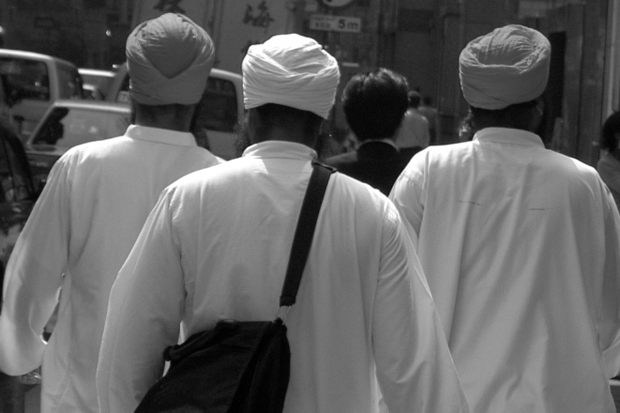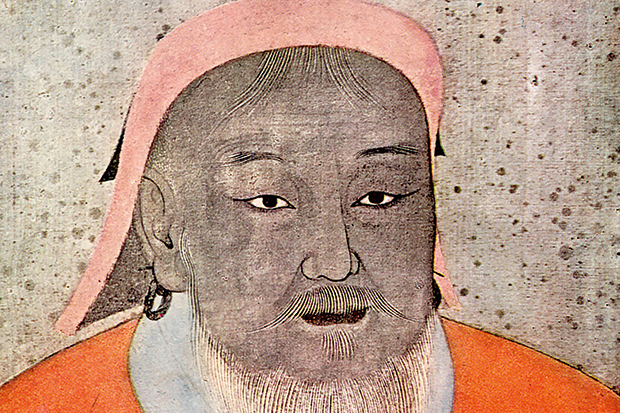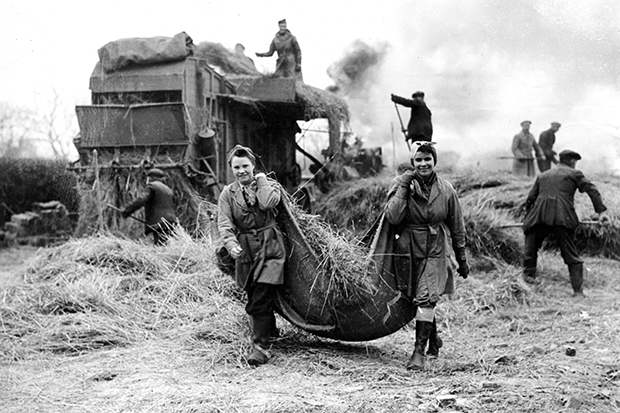Novels of such scope and invention are all too rare; unusual, too, are those of real heart, whose characters you grow to love and truly care for. The Year of the Runaways has it all. The action spans continents, taking in a vast sweep of politics, religion and immigration; it also examines with tenderness and delicacy the ties that bind us, whether to family, friends or fellow travellers. Judges of forthcoming literary prizes need look no further.
Rose Tremain’s The Road Home described the experience of an Eastern European immigrant arriving to look for work in England. The book (which is among Tremain’s finest) was a powerful corrective to the notion that such migrants have an easy time of things. But the lot of the European casual worker is one of unimaginable luxury when compared with that of immigrants from India. The Year of the Runaways shows what life might be like for a group of such workers. I say ‘workers’, but there’s the rub. The three young men at the centre of the story spend almost all their time and energy looking for employment, but their dodgy legal status, youth and isolation make theirs a largely thankless task. Without recourse to the benefit system enjoyed by their European counterparts, these characters risk starvation if they cannot find work.
The story begins as our three heroes arrive in Sheffield. In order to get there, one of the men has undertaken a sham marriage so as to qualify for citizenship; another has obtained a student visa, while the third has no papers at all. His life is further complicated by being from the Chamar caste. I hadn’t known that the caste system extended beyond the Hindu faith, but here it is, among Sikhs, a source of violence, prejudice and exclusion. The accident of his birth has already brought him almost unimaginable grief in India. In England, too, he is shunned and slighted.
Interwoven with life in a northern town are the three family histories in Punjab which have brought these young men here. In each case unemployment at home and a series of misfortunes — some hardly bearable in their horror — bring them to the decision to try their luck elsewhere. One has sold a kidney to buy his ticket. Loan sharks are involved. Families are depending on them for support. The promise of riches in England glitters in the far distance, yet the gap between their expectation of the joy and wealth they will find here and their lived experience is desperate. It’s Dick Whittington for the 21st century.
A fourth strand of the story concerns a pious Sikh girl from Croydon, Narinder. For complicated reasons, she marries one of the three so that he may come to England. She is a wonderful creation: kind, stubborn, modest and clever. She never does what you want her to do. Her fate is to become entwined with another of the group in a most touching and unexpected way. The novel closes with a glimpse of Narinder in Kanyakumari, at the very southernmost tip of India. For sheer emotion and vertigo-inducing anxiety, the scene ranks with Tess putting the letter under Angel Clare’s door, or Omar Sharif catching sight of Julie Christie on a moving bus in the film of Dr Zhivago. You cry because of the terribleness of it, but also because you just don’t want this book to end. Sunjeev Sahota is an absolutely wonderful writer. It is amazing that this book, so rich, so absorbing, so deftly executed, should be only his second. I doubt if I’ll read a better novel this year.
Got something to add? Join the discussion and comment below.
Get 10 issues for just $10
Subscribe to The Spectator Australia today for the next 10 magazine issues, plus full online access, for just $10.
Available from the Spectator Bookshop, £13.49 Tel: 08430 600033
You might disagree with half of it, but you’ll enjoy reading all of it. Try your first month for free, then just $2 a week for the remainder of your first year.














Comments
Don't miss out
Join the conversation with other Spectator Australia readers. Subscribe to leave a comment.
SUBSCRIBEAlready a subscriber? Log in